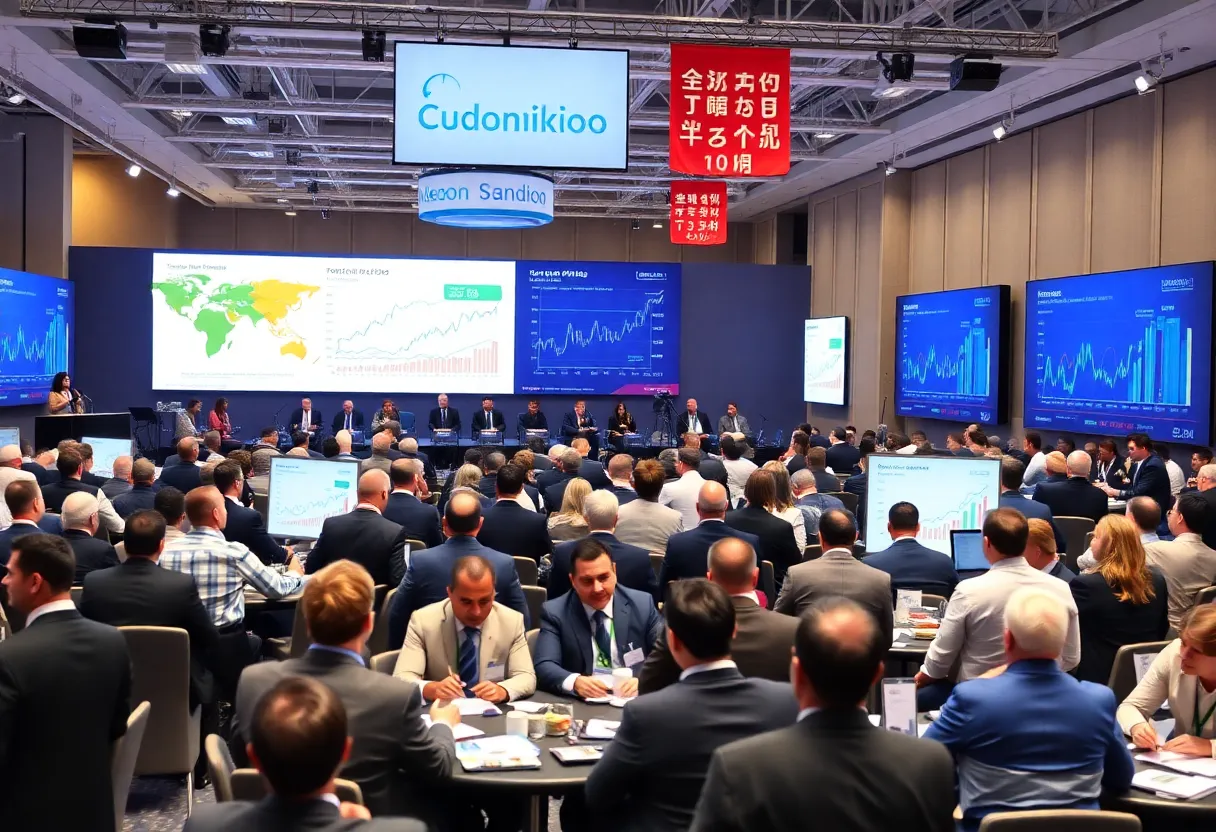

Professionals engaging in discussions on trade at the Milken Institute's Global Conference.
At the Milken Institute’s Global Conference, Ken Griffin from Citadel LLC expressed significant worries about President Trump’s trade policies, warning that tariffs could lead to crony capitalism. Many business leaders echoed concerns, fearing these policies may hinder growth and potentially lead to a recession. With a high percentage of CEOs anxious about tariffs affecting operations and consumer purchasing power shrinking, discussions emphasized the need for understanding the broad economic impacts as trade strategies evolve.
At a recent global conference, a key voice in the financial sector, Ken Griffin, who is known for his leadership at Citadel LLC, laid out serious concerns regarding President Trump’s trade policies. During his talk at the Milken Institute’s Global Conference, Griffin pointed out that these trade policies might lead us down a troubling path toward what he describes as crony capitalism.
So, what does crony capitalism mean in simple terms? It refers to a system in which the government favors certain businesses or industries, often to the detriment of fair competition and free markets. Griffin warned that the introduction of **tariffs** could unintentionally promote this kind of favoritism. Essentially, some companies may benefit from these tariffs while others struggle, which could lead to a host of economic issues down the line.
In a world where **trade policies** are evolving rapidly, Griffin expressed how unsettling it has been to witness changes unfold week by week. Many people, especially those working in business, share his anxiety about the ramifications. Trade wars might sound like a high-level concern, but for everyday Americans, they can quickly trickle down to affect job security, prices at the grocery store, and even the availability of products we use regularly.
Griffin’s feelings reflect a broader sentiment among business leaders gathered at the Milken Conference. Many voiced their fears that continuing along the current trade trajectory might not just slow down growth but could actually lead to a **recession**. They pointed out that a staggering **98% of global CEOs** surveyed are concerned that tariffs will thwart their ability to operate efficiently and boost sales over the next year.
One worrying trend that emerged was the sporadic granting of exemptions from tariffs for certain products and industries. This pattern raised eyebrows and served as a clear sign of crony capitalism taking root, a reality that many leaders are grappling with behind closed doors, even if they often publicly laud the president’s efforts.
Griffin also discussed a critical point: as the dollar’s value declines, consumers will likely notice the pinch in their **purchasing power**. This could mean higher prices for everyday items, including electronics, in a very short period. No one likes to pay more for things they need, and this calls into question if the trade policies currently in place are really benefiting average Americans.
The conversations at the Milken Conference not only revolved around Trump’s trade strategies but also included insights on how the **real estate sector** and rising construction costs might be affected by these tariffs. As leaders ponder the implications of these changes, White House spokespersons have come forward to defend Trump’s approach, claiming that it’s ultimately designed to benefit the workforce and results in wage growth for the middle class.
This dialogue at the Milken Conference highlighted a noticeable gap between the traditional Republican economic views, which typically advocate for open markets, and Trump’s more populist policies. As Griffin encouraged a more constructive criticism of the trade policies, the sentiment that the success of the administration is essential for both Republicans and Democrats echoed through the halls of the conference.
What comes next is anyone’s guess. The discussions also touched on the potential fallout from what some are calling **deglobalization**, which could reshape U.S. markets and businesses for years to come. Some attendees have remained cautiously optimistic about an economic recovery, while others, including Griffin, emphasized the various challenges presented by these evolving trade policies.
As this dialogue continues, it’s clear that everyone is keeping a watchful eye on how trade strategies play out and what that might mean for our economy, jobs, and everyday lives. Making sense of it all can be daunting, but understanding the implications of these policies is more important now than ever.
News Summary A skydiving plane mishap at Cross Keys Airport resulted in 14 injuries when…
News Summary Paramount Global has reportedly settled a lawsuit filed by former President Donald Trump…
News Summary President Trump inaugurated a new immigration detention center called 'Alligator Alcatraz' in Florida,…
News Summary Tupelo is gearing up for an exciting basketball season as the Mississippi State…
News Summary The community of Forest, Mississippi, is grieving the loss of Dahlia Neelo Noel…
News Summary Ace Reese, a key player for the Mississippi State baseball team, has announced…